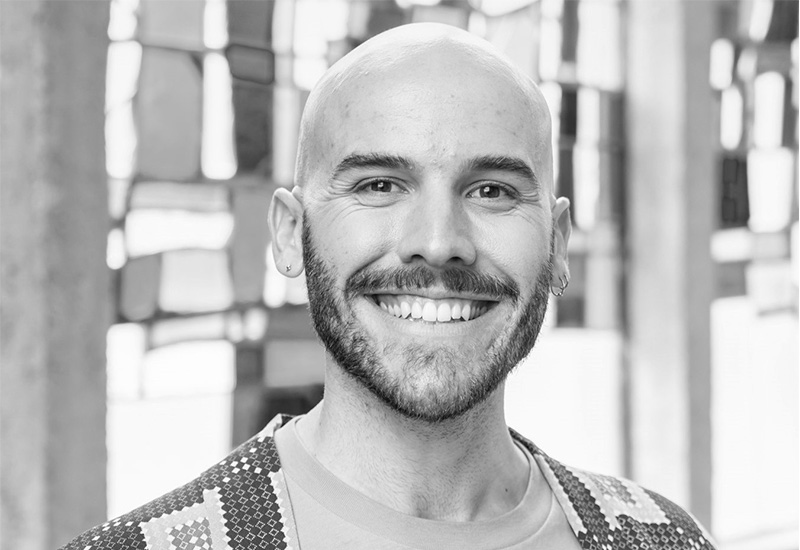Brisbane-based black&write! editor intern and IPEd member Darby Jones talks to us about his background, future aspirations and what made him decide to enter the editing profession.
The black&write! editor internship program provides professional development and networking opportunities for First Nations editors, and IPEd is a partner in this initiative.
Tell us about your background
I was born and raised on Kamilaroi Country in St George, Southwest Queensland. I graduated from St George State High in 2010 before moving to Brisbane and working as a hair colourist for ten years. I always had a passion for literature and writing but lacked the confidence to pursue it professionally until 2020 (during the first COVID-19 lockdown), when I undertook a Poetics MOOC on EdX.
I enjoyed it so much that I decided to apply for a Bachelor of Arts at UQ (University of Queensland), where I have been studying ever since. At the end of this year, I will graduate with a major in writing and minors in English literature and anthropology.
In addition to my internship at black&write!, I am fortunate to also work as a mediator at the UQ Art Museum and – as of this year – a freelance writer.
What made you decide to enter the field of editing and apply for the internship at black&write!? How are you finding it?
As a writer myself, the black&write! internship seemed like the perfect fit. I am so grateful for the opportunity to learn from the amazing team; supporting First Nations writers in becoming published authors is rewarding work!
I am loving my time at black&write! Working around words all day long is a dream and I’ve been pleasantly surprised to discover similarities between my previous career and my current one. Much like a hairdresser and their client, the relationship between an editor and their writer is one built upon vulnerability and trust. A client entrusts their hair to their hairdresser in the same way a writer entrusts their words to their editor. In both cases, you need to establish trust and demonstrate that you not only understand what it is your client/writer is trying to achieve, but that you have the capacity to help them realise their vision. Rushing this process could lead to disaster!
This is but one of the many lessons I have learned during my short time at black&write!. I am excited to see how much I have developed by the end of the year.
What are your aspirations or goals for after you’ve completed the internship?
By the time I finish my internship, I will have graduated from UQ. Ideally, 2024 will be spent working full-time as a freelance editor and writer (and maybe even getting my first manuscript picked up by a publisher). I will also continue working part-time as a mediator at UQ Art Museum.
As part of IPEd’s support of black&write’s editor internships, we’ve offered free membership to editor interns. What has your experience been of being a relatively new member of IPEd?
I love receiving the IPEd newsletters – they’re a great way of staying up to date with what’s happening in the industry. The accreditation scheme is also fantastic, and I will eventually take advantage of that to increase my employability.
How important are programs like black&write’s internships for editors and how important is it to support the development and opportunities for First Nations editors?
According to the Australian Publishing Industry Workforce Survey, less than 1% of people working in Australian publishing identify as Aboriginal or Torres Strait Islander. Take a moment to let that sink in. Less than 1%.
This lack of representation can make it very difficult for First Nations writers, who are typically required to educate their non-Indigenous editors on the cultural nuances and content within their work (often misinterpreted by editors as mistakes to be fixed). Working with a First Nations editor negates this kind of emotional labour. The inimitable Sandra Phillips recently wrote an article for The Conversation on the importance of First Nations editors; I implore you to read it.
black&write! has been addressing the under-representation of First Nations people within Australian publishing and supporting First Nations writers to tell their stories their way which is why it is a vital organisation within the industry.
Editor’s note: The excellent article by Dr Sandra Phillips (that Darby mentioned above) caught our eye too! We encourage you to read Dr Phillip’s article. You can also hear her speak. Dr Sandra is a keynote speaker at the 11th IPEd Editors Conference. Her keynote session, “Better books: Cultural intelligence and Indigenous strengths in publishing” will be held on Thursday 4 May. Please register for the conference by Tuesday 2 May if you’re interested in attending her session or accessing the recording afterwards.

